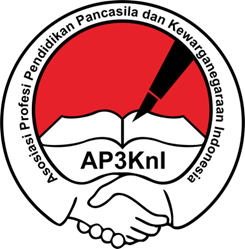Development of Self-Confidence Assessment Instruments for 7th State Junior High School Students in Banjarmasin
DOI: https://doi.org/10.26618/jed.v7i3.8169
Assessment Instruments, Confident Attitudes
Abstract
So far, most teachers only focus on the aspect of knowledge, while the assessment of the attitude aspect is only done through the teacher's subjective observations. This study aims to develop an instrument in the form of a valid and reliable student self-assessment to measure attitudes on indicators of self-confidence.The method used is Research and Development (R&D) from Borg and Gall. This research was conducted at State Junior High School 7 Banjarmasin, with 200 students as the sample. Data collection techniques used in the form of a questionnaire. The data were analyzed descriptively quantitatively with the help of SPSS version 25 program. Of the 35 instruments that were tested on a small scale, there were 28 valid instruments and 7 invalid items because they had an rcount of 0.349 at a significance level of 5%. Of the 28 valid instruments, a large-scale trial was carried out with a sample of 200 students. The results of the analysis of 28 items using the product moment test, the results obtained that all instruments were declared valid because all of them had rcount values > 0.138. From the 28 instrument items, it was followed by a reliability test using Cronbach's alpha formula and obtained a value of 0.898 (high criteria). It can be concluded that the 28 instruments are suitable to be used to assess the self-confidence of the students of SMP Negeri 7 Banjarmasin.References
Adawiah, Rabiatul and Dian Agus Ruchliyadi. (2021). Development of a Web-Based Self-Assessment Instrument to Assess Students' Social Attitudes at SMP Negeri Barito Kuala. Banjarmasin: Lambung Mangkurat University Banjarmasin.
Adawiah, R., Ruchliyadi, DA, & Susilowati, S. (2021) Development of an Instrument for Assessment of Students' Attitudes towards the Environment as a Form of Love for the Motherland. Journal of Citizenship Education, 11(2), 39-45.
Asiyah, Ahmad Walid, and Raden Gamal Tamrin Kusumahsiyah. (2019). The Influence of Self-Confidence on Student Achievement Motivation in Science Subjects. Journal of education andculture, 9 (3), 217-226
Asrul,RusydiAnanda and Rosita. (2014). Learning Evaluation. Bandung: Media Library
Azwar, Saifuddin. (2011). Human Attitude Theory and Its Measurement. Yogyakarta: Student Library
Directorate of Junior High School Development. 2017. Guidelines for Assessment by Junior High School Educators and Education Units. Jakarta: Ministry of Education and Culture, (Online), (http://repository. kemdikbud.go.idaccessed on January 8, 2022)
Fiorentika, K., Santoso, DB, & Simon, IM (2016). The effectiveness of self-instruction techniques to increase the confidence of junior high school students. Journal of Guidance and Counseling Studies, 1(3), 104-111.
Gaol, PL, Khumaedi, M., & Masrukan, M. (2017). Development of Confidence Character Assessment Instruments in Junior High School Mathematics Subjects. Journal of Research and Educational Research Evaluation, 6(1), 63-70.
Hedianto, Tofani. (2020). Analysis of Authentic Assessment Instruments in Class V SD/MI Student Books Theme 1 Animal and Human Movement Organs Revised Edition 2017. Thesis of Semarang State University.
Hendriana, H. (2012). Humanist mathematics learning with metaphorical thinking to increase students' self-confidence. Infinity Journal, 1(1), 90-103.
Ibrahim, Andi et al. (2018). Research methods. Makassar:GunadarmaKnowledge.
Komara, IB (2016). The relationship between self-confidence with learning achievement and student career planning. Journal of Psychopedagogia, 5(1), 33-42
Matondang, Z. (2009). The validity and reliability of a research instrument. Tabularasa Journal, 6(1), 87-97.
Mulyatiningsih, Endang (2012). Applied Research Methodology. Yogyakarta: Alphabeta
Novena, VV, & Kriswandani, K. (2018). The effect of the probing prompting learning model on learning outcomes in terms of self-efficacy. Scholaria: Journal of Education and Culture, 8(2), 189-196.
Permendikbud No. 23 years. (2016). Educational Assessment Standards. (On line), (Permendikbud_Tahun2016_Nomor023.pdf (bsnp-indonesia.org) accessedon January 8, 2022)
Pratiwi, ID, & Laksmiwati, H. (2016). Confidence and Independence in Learning in X State High School Students. Journal of Theoretical and Applied Psychology, 7(1), 43-49
Santosa, I. (2019). Student confidence instrument for junior high school. Wiyata Dharma: Journal of Educational Research and Evaluation, 7(1), 66-75.
Siswantoro, S., & Hariati, T. (2022). Efforts to Improve Self Confidence Through Group Guidance Services for Students. Biblio Couns: Journal of Counseling and Education Studies, 5(1), 132-141.
Sudarsana, KNA, Antara, PA, & Dibia, IK (2020). The feasibility of the PPKn learning activity assessment instrument. Pulpit PGSD Undiksha, 8(2), 150-158.
Sugeng, I., Hantoro, B., Derana, GT, Suhaimi, I., Supriyadi, SG, & Kusumawati, Y. (2022). GROWING STUDENT CONFIDENCE BEGINNING EXCELLENT SWIM COURSE WITH PLAY METHOD. JOURNAL OF COMMUNITY SERVICE, 2(2), 104-110
Sugiyono. (2012). Quantitative, Qualitative and Research MethodsR&D. Bandung: Alphabeta.
Tanjung, Z., & Amelia, S. (2017). Foster student confidence. JRTI (Journal of Indonesian Action Research), 2(2).
UU no. 20 of 2003. National Education System. (On line), (https://pusdiklat.perpusnas.go.id/regulation/download/6, accessed 28 January 2022)
Wildan, W. (2017). Implementation of authentic assessment of aspects of knowledge, attitudes and skills in schools or madrasas. Tatsqif Journal, 15(2), 131-153.
Wulansari, Adhita Dessy. (2012). Educational Research:SomethingPractical Approach Using SPSS. Ponorogo: STAIN Po PRESS.

.jpg)


